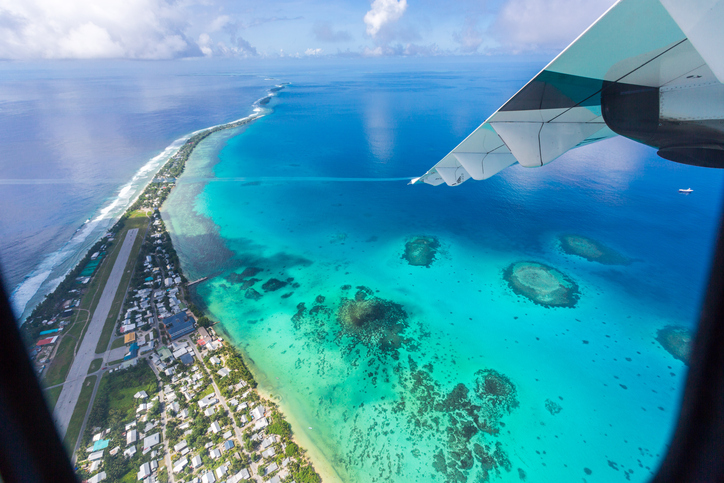Disappearing Tuvalu: Can Metaverse Save It?
- By Lachlan Colquhoun
- May 01, 2023

Virtual cities and destinations have been created in the metaverse, beginning with places like Second Life and Decentraland. But the South Pacific nation of Tuvalu is taking the unique approach of recreating itself as a digital twin.
Other cities and nations are doing the same. Seoul and the Caribbean nation of Barbados use the metaverse to deliver administrative and consular services, but Tuvalu’s rationale is unique.
For Tuvalu, with a population of only 12,000, its metaverse project is one of existential survival. This is because the tiny South Pacific archipelago is one of the nations most threatened by climate change. Up to 40% of the districts in the capital are underwater at high tide.
The nine islands and low-lying atolls which make up Tuvalu have the highest elevation of only 4 meters above sea level. A slight rise in sea levels will submerge a significant percentage of Tuvalu, drowning agricultural land and villages.
First digital nation
One of Tuvalu’s responses to this threat has been digital. At the U.N. COP27 conference in Egypt last November, the country’s foreign minister unveiled a digital replica of one of the islands which make up his country. The idea is to prevent all physical traces of Tuvalu from disappearing under rising oceans by moving to the cloud.
“As our land disappears, we have no choice but to become the world’s first digital nation,” he told the conference.
It will also be interactive. People can visit Tuvalu in the metaverse and experience it through augmented and virtual reality.
“As our land disappears, we have no choice but to become the world’s first digital nation”
The Tuvalu Foreign Minister Simon Kofe told public broadcaster ABC recently that the plan is for the entire nation to move online.
“If we imagine in the future that Tuvaluans are dispersed across the earth, we would like to have a framework in place that ensures that the government can continue to function, co-ordinate itself and the people, manage our resources, our tuna industry and our domain name,” Kofe told the ABC.
The Tuvalu experience differs from the virtual real estate created in metaverse platforms such as Decentraland, which is more about the real estate boom and bust cycle.
On Decentraland, the land was initially sold at USD20 for a plot, but prices are now up around USD3,500.
In 2021, a 116-parcel plot of digital land in Decentraland sold for a record EUR2.49 million worth of cryptocurrency. In total, Decentraland recorded sales of USD$571 million in 2021, and that figure is expected to exceed USD1 billion in 2022.
Retaining sovereignty
The Tuvalu project, however, is more about national survival than property values. The idea is that even if the whole nation sinks beneath the wave, digital Tuvalu will ensure that it retains sovereignty and continues to exist.
“So, you still have citizens that can vote, leaders can be elected into office, there can still be a cabinet of Parliament,” Kofe said.
Also at issue is the question of Tuvalu’s sovereignty. The Government wants Tuvalu to continue to be recognized by the international community even if the nation is entirely underwater. It wants maritime boundaries respected and — perhaps most importantly – wants rights to the resources respected.
So far, seven governments have agreed to continue to recognize a digital-only Tuvalu, but this is yet to be challenged and tested through the channels of international law.
Foreign Minister Kofe admits that the metaverse is no “easy alternative.” It is motivated by an attempt to draw attention to the nation’s plight and ask questions about what could happen if it were to disappear under the waves completely.
The digital Tuvalu project raises essential issues beyond climate change. Can a nation exist without its land? Can sovereignty and a connection to home continue to exist digitally if the physical version disappears? How can rights, and critical economic rights, be respected if a nation is overcome by a natural disaster, not of its own making?
For the first time, digital twins offer a solution, although imperfect, to some of these challenges.
Lachlan Colquhoun is the Australia and New Zealand correspondent for CDOTrends and the NextGenConnectivity editor. He remains fascinated with how businesses reinvent themselves through digital technology to solve existing issues and change their entire business models. You can reach him at [email protected].
Image credit: iStockphoto/Dmitry Malov









